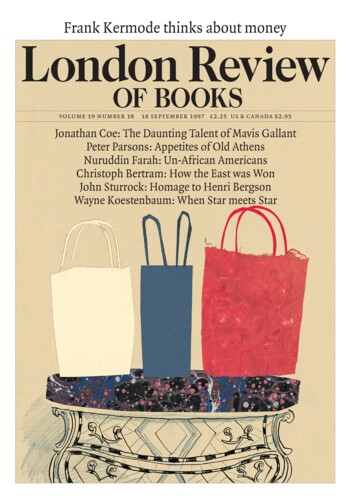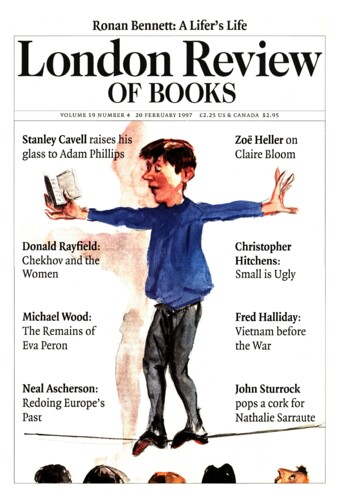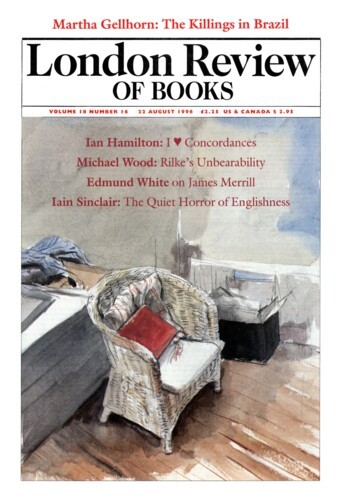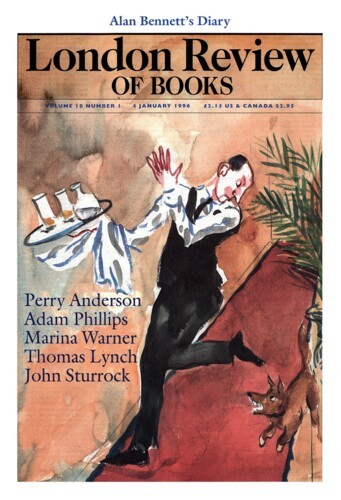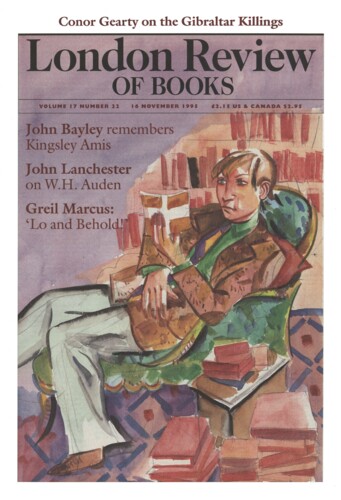Why the Tortoise Lost
John Sturrock, 18 September 1997
In the years before 1914, the open lectures that Henri Bergson gave at the Collège de France were the prototype in intellectual chic for the barnstorming Parisian ‘seminars’ of Jacques Lacan in the Sixties and Seventies, even if the topics that the fashionable came to hear were as dry as the lecturer’s podium manner: ‘The Evolution of Theories of Memory’, ‘Theories of the Will’, ‘The Nature of Mind and Its Relation to Cerebral Activity’. Women especially took to Bergson, and in such numbers that displaced students complained at being unable to get into the lecture-hall, asking that the too popular professor should move to somewhere more spacious, the Paris Opéra perhaps. When, in 1914, he was elected to the Académie Française, there was a run on the local flower-shops and the dais was fragrant with the bouquets of his admirers. Bergson was appalled: ‘I am not after all a ballerina,’ he declared, a rare disclaimer for a philosopher to have an opportunity to make.
